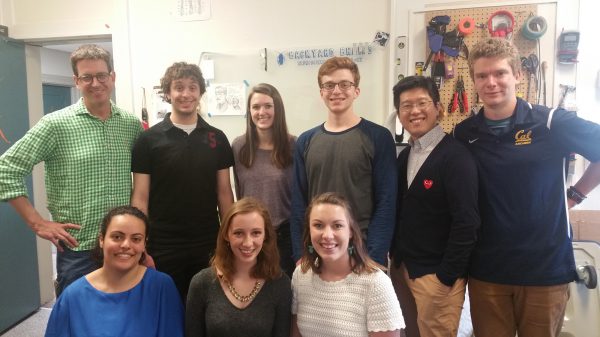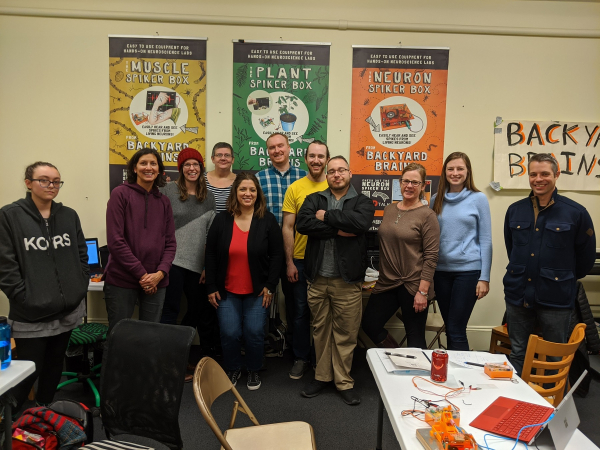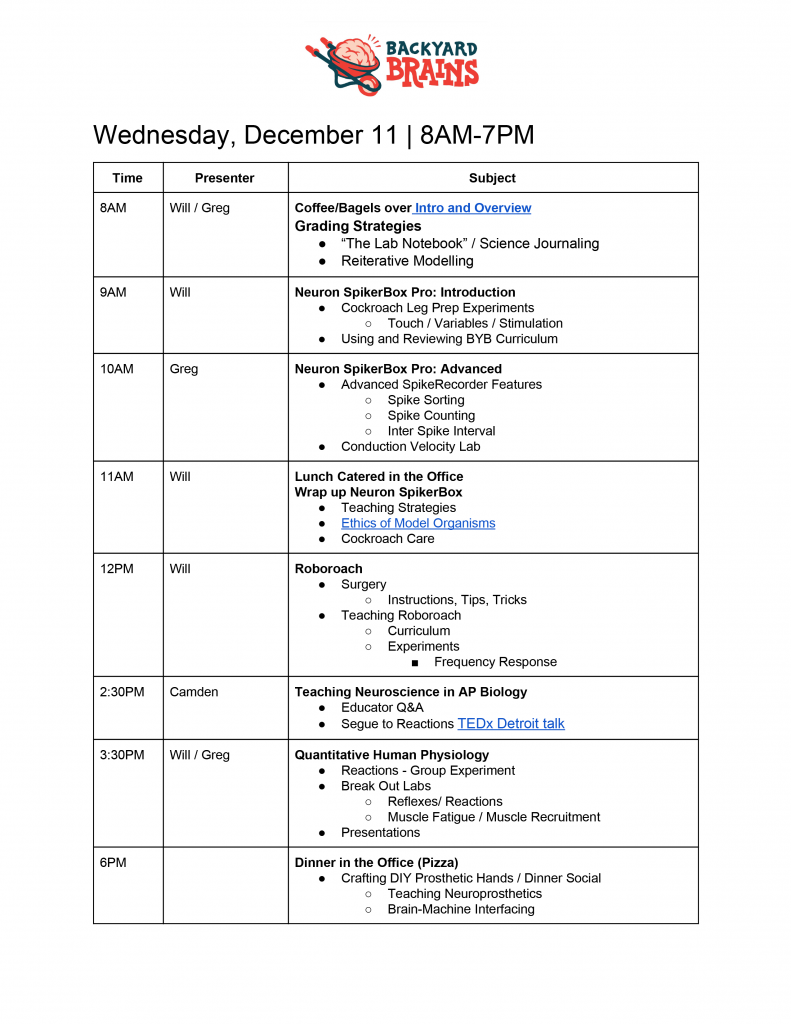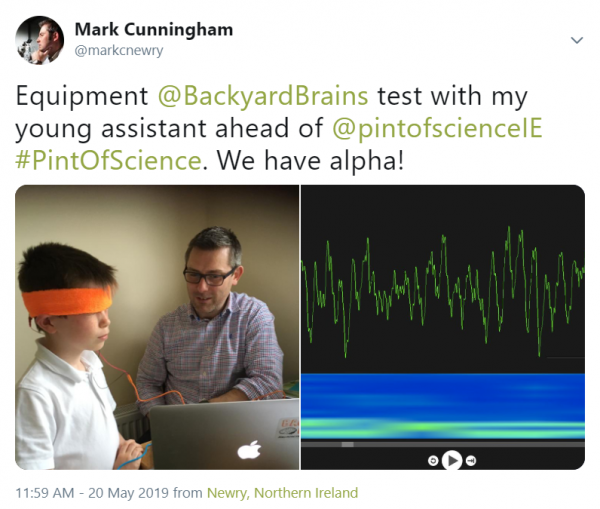-
 EducationNew from Backyard Brains: An in-depth summer training experience to help bring NGSS-aligned neuroscience lessons into your classroom. Do you want to learn how the brains of animals like crawdads or praying mantises work? Do you want to develop your own innovative experiments to take back to your students? Would you like to learn to […]
EducationNew from Backyard Brains: An in-depth summer training experience to help bring NGSS-aligned neuroscience lessons into your classroom. Do you want to learn how the brains of animals like crawdads or praying mantises work? Do you want to develop your own innovative experiments to take back to your students? Would you like to learn to […] -
 BizFollowing the previous success of our 3-day Teacher Training workshop at the end of the 2019 Calendar Year – we decided to kick-off 2020 with a free workshop for educators, open to all! So we set a date… Jan 31st, shot out some emails, and hoped we wouldn’t be eating bagels and cream cheese alone in […]
BizFollowing the previous success of our 3-day Teacher Training workshop at the end of the 2019 Calendar Year – we decided to kick-off 2020 with a free workshop for educators, open to all! So we set a date… Jan 31st, shot out some emails, and hoped we wouldn’t be eating bagels and cream cheese alone in […] -
 EducationWould you like all the benefits of a Backyard Brains workshop without leaving the comfort of your desk chair? Our friends and partners at Educational Innovations can help! On February 20, 2020, from 4:00-4:30pm EST, Educational Innovations will be hosting a webinar on Neuroscience in the K-12 Classroom! The Details…What: a free, 30-minute webinar from EI […]
EducationWould you like all the benefits of a Backyard Brains workshop without leaving the comfort of your desk chair? Our friends and partners at Educational Innovations can help! On February 20, 2020, from 4:00-4:30pm EST, Educational Innovations will be hosting a webinar on Neuroscience in the K-12 Classroom! The Details…What: a free, 30-minute webinar from EI […] -
 EducationThis is a call to arms for science educators everywhere… Following the success of our three-day teacher training workshop at the end of 2019, and our Summer 2019 Workshop on Reactions and Reflexes, we want to kick off 2020 with the next FREE workshop open to the public! This workshop is coming up quick… so reserve your […]
EducationThis is a call to arms for science educators everywhere… Following the success of our three-day teacher training workshop at the end of 2019, and our Summer 2019 Workshop on Reactions and Reflexes, we want to kick off 2020 with the next FREE workshop open to the public! This workshop is coming up quick… so reserve your […] -
 EducationTexas Teachers Brave Michigan Winter for Neuroscience Ed Workshop, and Love it! Nine teachers from Texas join up with a few of us Neuroscience Education nerds in snowy Michigan… and holiday magic happens!
EducationTexas Teachers Brave Michigan Winter for Neuroscience Ed Workshop, and Love it! Nine teachers from Texas join up with a few of us Neuroscience Education nerds in snowy Michigan… and holiday magic happens! -
 EducationTake it from Twitter: Low-cost EEG is a powerful teaching tool! As a business, it can be strange to package and ship off all these different neuroscience education tools, wondering if they’ll like their new home, will they make a difference in this big, strange world? Much like a proud parent, we are always excited […]
EducationTake it from Twitter: Low-cost EEG is a powerful teaching tool! As a business, it can be strange to package and ship off all these different neuroscience education tools, wondering if they’ll like their new home, will they make a difference in this big, strange world? Much like a proud parent, we are always excited […]